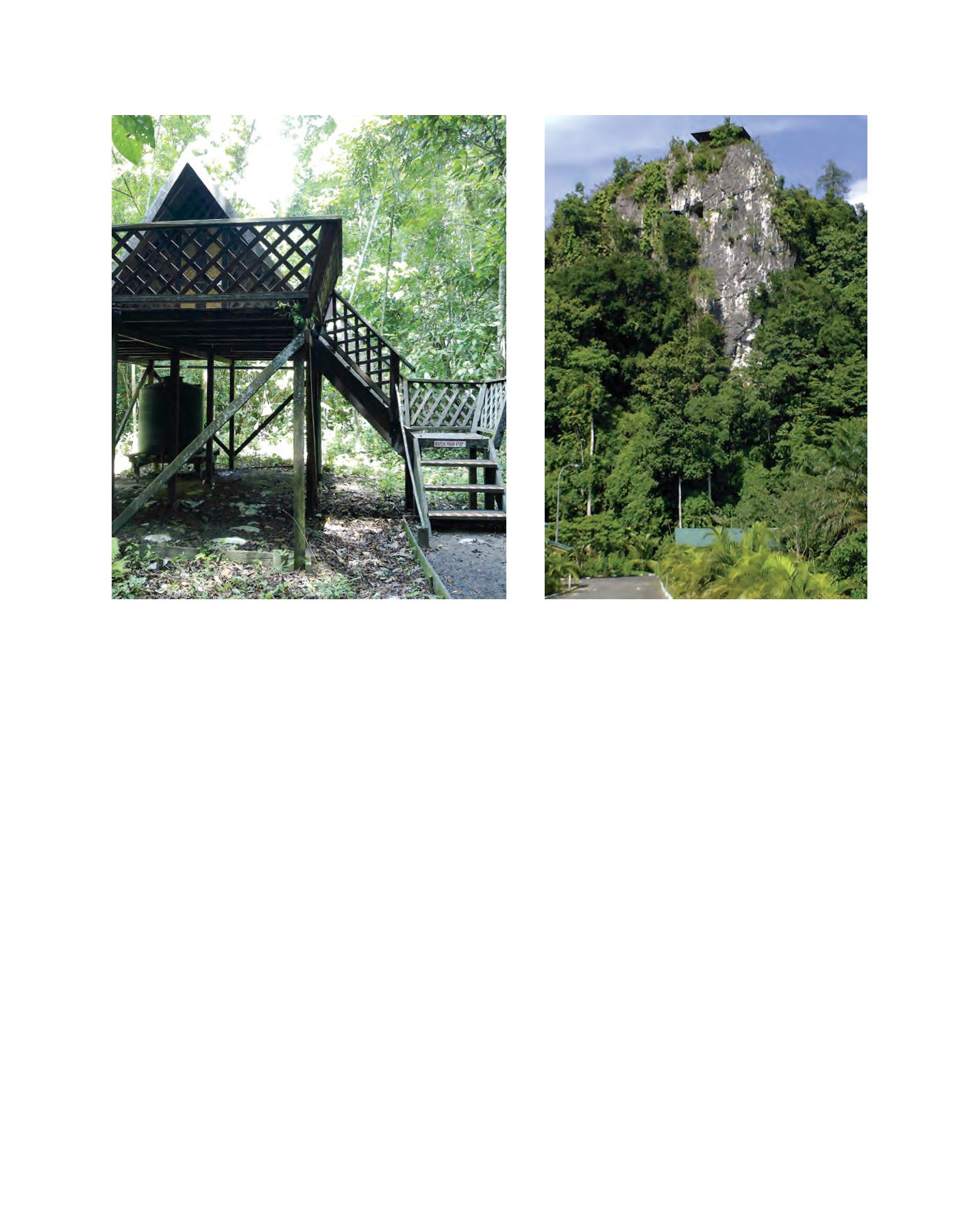

[
] 208
ox-bow lake restoration projects that KOPEL has been
able to obtain from relevant Government agencies.
The ultimate aim is to create a sense of hope
for a sustainable future for the people of the
LowerKinabatangan. KOPEL was formed to coordi-
nate and amalgamate a number of separate village
ecotourism associations such as MESCOT, Miso Walai
Homestay, Mayo do Talud Boat Service, Wayon Tokou
Nature Guide Service, MESCOT Culture Group, Tulun
Tokou Handicrafts Association and Tungog Rainforest
Eco Camp. These activities are all serviced by local
villagers. The Floodplain Forest Habitat Rehabilitation
and Wetland Lake Rehabilitation programmes provide
additional job opportunities for KOPEL members. As
a result, from an initial 110 members in 2003 and an
administrative team of seven, KOPEL had expanded to
400 memberships by 2011.
CBFET at Batu Puteh is rising in popularity and provides
tourist income and green jobs to local households. Over
the 10-year period since implementation, rates have risen
at an average rate of 175 per cent per annum, growing
from 176 visitors in 2000 to more than 3,000 in 2010.
There are two main categories of visitors, the first of which
is group-inclusive tourists (GIT), who commonly make
advance bookings to visit and participate in homestay
and conservation activities. This is the main target and
is preferred by the KOPEL administration, because the
social and cultural sustainability and gives local people the opportu-
nity to participate.
2
These components have to be organized on the
basis of transparent cooperative governance by enacting a knowledge
network drawing on the experience and wisdom of a wide range of
key individuals, including village leaders, external non-governmental
organizations (NGOs), consultants, advisors and volunteers.
3
Conflict
resolution procedures are put in place and the legitimacy and accept-
ance of the governance structure ensures that community members
are committed to well-defined roles and responsibilities.
4
Ecotourism at Batu Puteh is managed by KOPEL (an acronym for
Koperasi Pelancongan or ‘Ecotourism Cooperative’). Active since
July 2003, KOPEL serves the community in the villages of Batu
Puteh, Mengaris, Perpaduan and Singgah Mata.
The community of Batu Puteh is like many poor, isolated, indigenous
rural communities in Sabah,whose traditional reliance on the rainfor-
est for food, medicines, daily commodities and trade with the outside
world has been displaced by the loss of forests and cultural heritage
and a cash-driven lifestyle. KOPEL was set up to reverse the losses, to
capitalize on ancient indigenous and traditional knowledge and culture
and to create economic value and appreciation of the rainforests.
The local community members of KOPEL initially looked to
CBFET to generate a reliable source of income and take them
out of poverty. By 2010, ecotourism had become as important an
economic activity to the villagers as oil palm growing. Local commu-
nities benefit from KOPEL, firstly in terms of ecotourism services
that provide sustainable incomes and secondly as a result of work
allocated to members of cooperatives for forest rehabilitation and
The eco-camp at Batu Puteh provides visitors with accommodation within the natural
forest environment
Located within the Batu Puteh enclave is the historic archaeological
site of Batu Tuluq
Image: Mohd Shahwahid
Image: Mohd Shahwahid
















